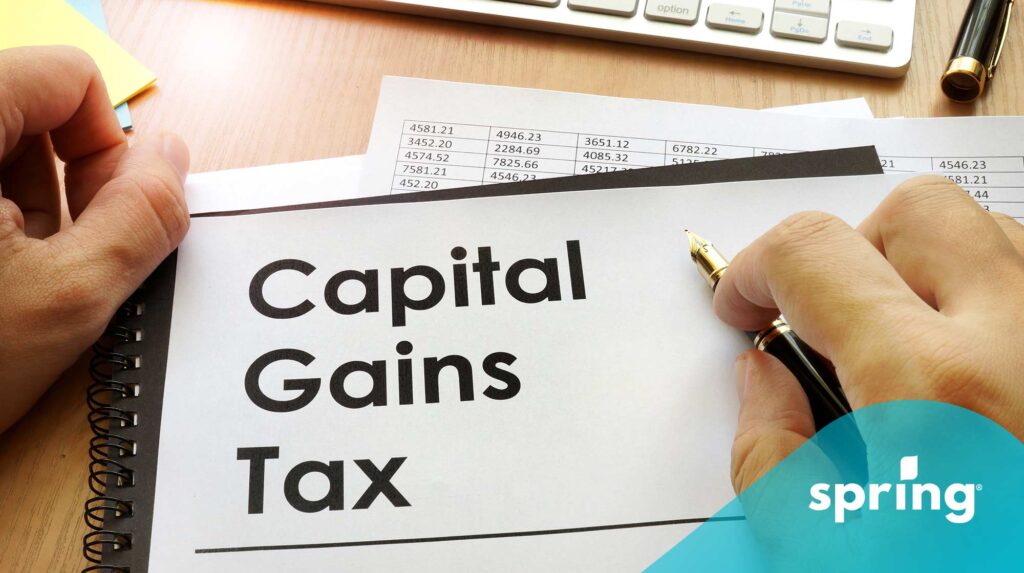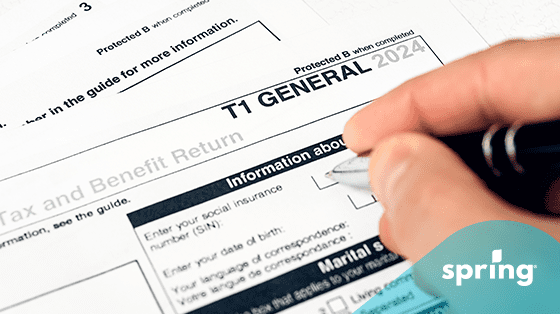According to a 2018 study by the Canadian University Survey Consortium, students today are graduating with an average of $28,000 in student loan debt. To put that average into perspective, if you wanted to pay off your student loan (with a current average interest rate of 6%) within 10 years of graduating, you’d be looking at monthly payments of around $320.
That’s a hefty monthly number for a recent graduate who’s looking to start their career, land a job in their field, and begin investing in other areas of their life, such as saving for a mortgage, marriage, or kids. It’s easy to see how the financial burden of paying off student loans causes young people to put their lives on hold, and put things like family planning on the backburner, simply because they can’t afford it.
The crisis is particularly acute in Ontario, where the vast majority of student loans are issued through the Ontario Student Assistance Program (OSAP). In 2018 in that province, more than 1 in 6 insolvencies were due to unmanageable student loan debt.
If you’re a current student, recent graduate, or even if you graduated a long time ago and you’re wondering how to pay off OSAP faster, or how to pay off your other student loans quickly, keep on reading. We’ve assembled some helpful tips and strategies to help you lower your monthly payments and pay off your student debt faster.
How to Pay Off Student Loans Fast
If the answer to any of the above questions is yes, your best course of action is to try and pay off your student loans as fast as possible. This might mean making some aggressive cuts to your spending for the short term, but if it means paying down your student debt fast they’ll be worth it.
Here’s a look at some tried and true ways to pay off your student loans fast.
1. Take Advantage of the Grace Period
The first big tip applies to current students, those who are about to graduate, and those who’ve just graduated.If your student loan is an official government loan or student line of credit, you should be taking advantage of the fact you don’t have to make any payments on the principal while you’re in school. Even better, government-funded student loans and lines of credit have a grace period of 6 months after graduation before payments are expected.
The big takeaway for students here is simple: Don’t wait until the end of your 6-month grace period to begin paying off the principal of your student loan. In fact, don’t even wait until you graduate. Whatever you can afford to be putting into your student loans before your grace period ends the better, as you’ll be incrementally taking bigger and bigger bites out of your principle and ultimately saving oodles in interest over the life of your student loan.
2. Tackle High-Interest Loans First
If you’re like many students in Canada, you don’t have a single source of debt. You might have a student loan from the Government of Canada, a student line of credit from your bank, and a credit card. By the time you graduate (and racked up four or more year’s worth of credit card charges for textbooks) you’re likely juggling several debts that cumulatively look impossible to pay off.
If this is the case for you, the most prudent advice you can follow is to tackle your high-interest debts first. Pay the minimums on your lower-interest debts and pour as much additional money into your high-interest debt as you can.
Depending on the size of your loans, this one trick can potentially save you thousands and thousands of dollars in interest alone and speed up your path to being debt-free as you’re taking big bites out of the principal with every payment.
3. Live Frugally, Even After You Graduate
One of the biggest mistakes that students make while they’re in school is to spend their student loan money on non-essential expenses, such as nights on the town, spring break trips, car insurance, and so on.
It’s fine to treat yourself every now and then, but living frugally while you’re in school means not having to use every dollar of your student loan. And every dollar you don’t spend from your student loan can be used to pay it off proactively. In other words, by limiting your spending to essential school-related expenses, you can essentially lower your loan amount and be looking at a less burdensome student debt after you graduate.
This is great advice to follow even after you graduate as well. Many people feel the urge to move out of their parents’ home, get a car, and begin racking up expenses the minute they graduate. By showing some restraint, you can take advantage of your grace period and use your savings to aggressively pay down your student debt until it’s more manageable.
4. Check Your Eligibility for a Student Loan Forgiveness Plan
In some cases, your best strategy for paying off your student loans fast is to actually have a giant portion of it forgiven entirely. Student Loan Forgiveness Plans change regularly, often depending on the need for specific expertise in certain areas of the country.
For example, in 2013 the Government of Canada began a forgiveness plan for doctors and nurses. The government forgave up to $40,000 in student loans for family physicians who committed to working in rural areas, and up to $20,000 for nurses who did the same.
The Saskatchewan Graduate Retention Rebate is another prime example. In an effort to entice new graduates to stay in the province and start their careers, it gives residents who have student loans up to $20,000 in income tax credits
5. Apply for Repayment Assistance
Last but not least, if you’ve tried all of the above options and you’re still struggling to pay off your student loans, you may be eligible to apply for a repayment assistance program.
In addition to federal student loans, most provincial student loans in Canada have a repayment assistance program in place to help those who need it. Ontario’s program, for example, lets borrowers make monthly payments based on how much they earn, instead of the standard 10-year repayment schedule.
The major benefit of these programs is they don’t simply extend the terms of your loan if you can only afford to pay lower monthly payments. If your adjusted monthly payments aren’t enough to pay the interest on your loan, the program simply pays it for you.
These programs are reserved for those who are truly struggling, so in order to be eligible, you’ll need to be prepared to verify your income.
How Much Student Loan Debt is Too Much?
There’s no right answer to the question of “how much is too much” when it comes to your student debt. It’s different for every person and every situation. If you’re simply wondering how you compare to others, the average student debt in Canada is a good start.
The average student debt is around $28,000 per student, but remember this is just an average. There are thousands of students graduating every year with student debt more than double or three times higher, and you might be one of them.
The main questions to ask yourself are:
- How is your student debt is impacting you financially?
- Can you afford the monthly minimum payments each month?
- Is the burden of repaying your student loan causing you to put other areas of your life and personal growth on hold?
Do Student Loans Affect Your Credit Rating?
Student loans do affect your credit rating and in multiple ways. The most immediate is if you begin missing your minimum monthly payments. Your credit score is calculated with a number of components in mind, but the single biggest factor is your payment history — whether you’re making payments on time or not.
But even if you’re making your payments on time, your student loans can still negatively impact your credit rating. This is because credit ratings are also calculated based on your credit usage. In a nutshell, that means the more of your available credit you use, the lower your score will be. For these reasons alone it’s important to pay off your student loans as fast as possible.
If you already know or suspect your credit rating is lower than you’d like, be sure to read our simple guide on how to improve your credit score.
Spring Financial serves Canadians facing all types of credit situations with practical advice and credit-building solutions. We also offer quick-and-easy secured and unsecured installment loans to help you take those first steps to a better financial future. Apply today to see how we can help!









